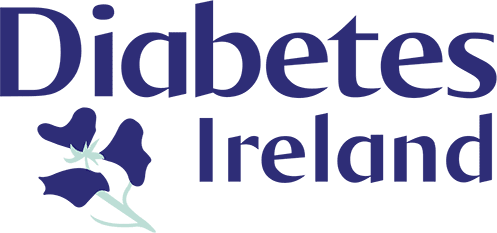What is Diabetes?
Diabetes is a lifelong condition that occurs when a person's blood glucose levels become too high because their body is not producing enough insulin or the insulin is not working effectively. It is believed that thousands of cases of Type 2 diabetes remain undiagnosed in Ireland.
Many more people have blood glucose levels above the normal range, but not high enough to be diagnosed as having Diabetes. This is sometimes known as pre-diabetes. If your blood glucose level is above the normal range, your risk of developing Type 2 diabetes is increased.
It's very important for Diabetes to be diagnosed as early as possible. You should visit your Pharmacist or GP as soon as possible if you have symptoms of Diabetes.
What is Type 2 Diabetes?
Type 2 Diabetes is diagnosed when the body doesn't produce enough insulin, or the body's cells don't react to insulin - this is known as insulin resistance.
Type 2 Diabetes is far more common than Type 1 diabetes - If you're diagnosed with Type 2 diabetes, you may be able to manage it simply by eating a healthy diet, exercising regularly, managing your weight and in some cases monitoring your blood glucose levels at home. However, in some cases medication is required, usually in the form of tablets.
Risk Factors for Pre-diabetes/Type 2 diabetes
There are a number of factors that increase the chances of Pre-diabetes/Type 2 diabetes developing. The more risk factors you have the higher your chances of developing Type 2 diabetes. They include age (over 40 but the risk of Type 2 continues to increase with age), having a family history of diabetes, being overweight for your height, being sedentary, being on medication for high cholesterol and high blood pressure, having had diabetes during pregnancy (gestational diabetes). If you have a number of these risk factors it is important that you go to your GP for routine blood tests to rule out a diagnosis of Type 2 diabetes as it is possible to have it and not know it.
Signs and Symptoms
The main symptoms of Diabetes are:
- Excessive thirst,
- Urinating more frequently than usual, particularly at night
- Feeling very tired
- Weight loss and loss of muscle bulk
- Itching around the penis or vagina, or frequent episodes of thrush
- Cuts or wounds that heal slowly
- Blurred vision (caused by the lens of the eye becoming dry)
- Sometimes no symptoms
If these symptoms present themselves, it is important to contact your GP. Diabetes is diagnosed by taking routine blood tests to check the level of glucose in the blood.
Treatment for Type 2 Diabetes:
You can effectively manage Type 2 diabetes. The cornerstone of the management of Type 2 diabetes is healthy eating, regular physical activity and aiming to have a weight that is appropriate for your height. Your doctor may advise you to test your blood glucose levels at home and you will be advised how often and what level they should be. The goal of diabetes management is to have a blood glucose level within the normal range so you feel well daily and you avoid potential medical complications associated with Diabetes.
Follow these tips to manage Type 2 diabetes:
- Include foods rich in fibre and healthy carbohydrates in your diet. Eating salads, fruits, vegetables, and whole grains will help keep your blood glucose levels steady.
- Eat at regular intervals.
- Control your weight and keep your heart healthy. That means keeping refined carbohydrates, sweets, and animal fats to a minimum.
- Get about half an hour of aerobic activity daily to help keep your heart healthy. Exercise helps to control blood glucose, too.
- You will have to attend for certain health checks to monitor your diabetes. Your GP/Nurse will do routine blood tests, check your blood pressure and review your medication twice a year. You should also have an annual foot assessment and attend for annual eye screening with Diabetic Retina Screen the National screening programme.
Occasionally people with Type 2 diabetes needs to use insulin injections. If you do, it’s because your pancreas isn’t making enough insulin on its own. It’s crucial that you take insulin as directed. There are other prescription medications that may be prescribed for you to help manage your diabetes.
What can I do to reduce my chances of developing Type 2 Diabetes?
There are several ways that you can reduce your chances of developing Type 2 Diabetes, including eating a healthy diet, exercising regularly, drinking alcohol in moderation, managing your weight and quitting smoking.
How can your Pharmacist help?
Pharmacists play an important role in the care and support of people diagnosed with diabetes. Your Pharmacist is the most accessible healthcare professional and is readily available to:
- Monitor Blood glucose levels,
- Answer questions about diabetes and related health conditions.
- Offer support and advice to help reduce your chances of developing Type 2 Diabetes, as well as support to improve outcomes for those with Type 2 Diabetes.
- Offer guidance on the proper use of medications and other supplies used to treat diabetes.
- Reduce the risk of complications through early detection of Diabetes and by contributing to the management of the risk factors for complications.
At CarePlus Pharmacy, you will find help and support to quit smoking from our CarePlus Quit Teams and our Pharmacists are always available to help you with your queries. Ask your local CarePlus Pharmacist for help and advice in managing your Diabetes.
There are lots of supports available from Diabetes Ireland, see www.diabetes.ie or telephone 01-842 8118
Information from Diabetes Ireland


